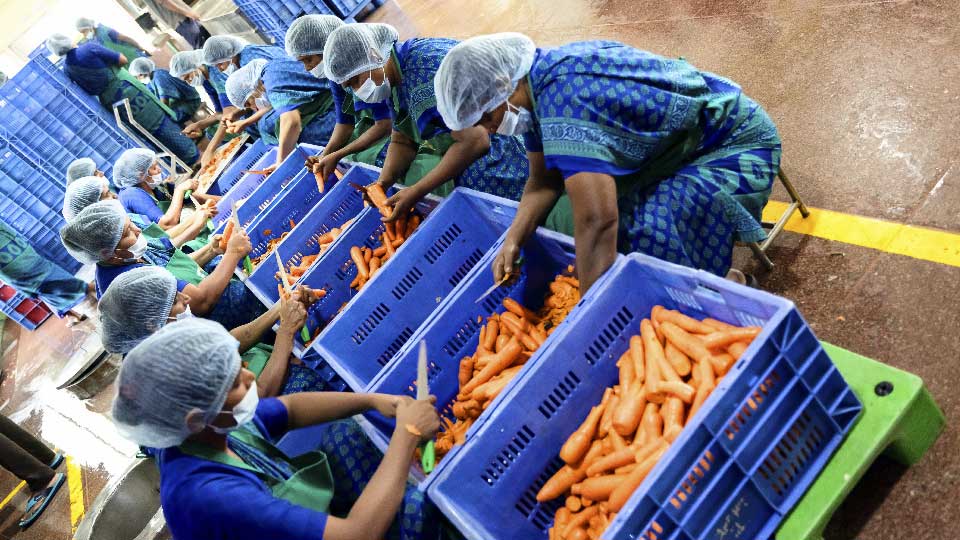
The Power Of Giving: How Food Banks Help Families In Crisis?
In times of hardship, food banks have become a crucial lifeline for families facing crisis situations. Many families struggle to afford meals owing to unforeseen medical expenditures, job loss, or economic uncertainty. In these challenging times, food banks not only provide immediate relief but also offer hope and support for those in need. The power of giving through food banks cannot be underestimated, as these organizations play a significant role in alleviating hunger and fostering a sense of community and compassion.
The Role Of Food Banks
Nonprofit food banks gather, store, and distribute food to food-insecure families. They coordinate food distribution with local pantries, soup kitchens, and shelters. By partnering with various community organizations and relying on donations from individuals, businesses, and government agencies, food banks can provide nutritious meals and other essentials to those who are struggling.
Unlike traditional grocery stores, food banks offer food free of charge to those who qualify, providing much-needed assistance without the burden of a financial cost. For families living paycheck to paycheck or those who have recently encountered a personal or financial crisis, food banks offer a temporary solution that helps them bridge the gap until they are back on their feet.
Alleviating Hunger And Reducing Food Insecurity
One of the primary ways food banks help families in crisis is by alleviating hunger. Nearly 40 million Americans are food insecure, according to Feeding America. This issue is particularly prevalent among families with children, single-parent households, and the elderly.
Food banks help solve this problem by providing nutritious food to the needy. By providing non-perishable goods, fresh produce, dairy, and sometimes even prepared meals, food banks help families put food on the table during difficult times. In many cases, food banks provide enough to help families survive for a week or more, allowing them to focus on regaining stability while ensuring their basic nutritional needs are met.
Building Community And Strengthening Social Networks
While the immediate benefit of food banks is clear in terms of providing food, their long-term impact goes beyond just alleviating hunger. Food banks serve as community hubs, bringing together volunteers, donors, and recipients to address the broader issue of food insecurity. By encouraging people to give back, whether through monetary donations, food drives, or volunteering their time, food banks foster a sense of unity and collective responsibility.
A food bank volunteer can strengthen neighborhood bonds and contribute to a broader cause. It allows people to witness firsthand the struggles of those in need, promoting empathy and a deeper understanding of food insecurity. In return, recipients of food bank near me often feel supported and valued, knowing that their community cares enough to step in and help when they are struggling.
Moreover, food banks often partner with local organizations to provide additional resources and support. These collaborations may provide financial advice, career training, or housing support to help families escape poverty and secure their future. Food banks, therefore, not only provide food but also connect individuals with the services they need to regain independence and stability.
The Power Of Giving: How Individuals Can Make A Difference?
Food banks depend on individual, business, and organization donations. Donating food, money, or time, organizing local food drives, or volunteering can help crisis victims. It is important to remember that even small contributions can have a significant impact.
For example, a single canned good may seem small, but when collected in large quantities, it can provide meals for dozens or even hundreds of families. Food banks need monetary donations to buy fresh produce, dairy, and other things that may not be available through donations. Additionally, food banks often operate on tight budgets, and cash donations allow them to meet operational needs, including transportation, storage, and staffing.
Long-Term Solutions And Sustainability
Food banks give short-term respite and address food insecurity’s core causes. Many food banks are increasingly focusing on sustainable solutions that go beyond just distributing food. These include programs that educate families about nutrition, cooking, and budgeting, helping them become more self-sufficient in the long run. Some food banks even offer community gardens, job training, and financial literacy courses, helping families build the skills they need to break free from poverty.
Food banks can also advocate for systemic change by raising awareness about food insecurity and its underlying causes, such as poverty, unemployment, and inadequate access to education. By working with policymakers and community leaders, food banks help bring attention to these issues and push for long-term solutions that will reduce the need for emergency food assistance.
Conclusion
Food banks are a powerful testament to the impact of giving and the strength of the community. They provide vital support to families in crisis, offering not only food but also hope and dignity during times of hardship. The power of giving through food banks extends far beyond the immediate provision of meals—it fosters a sense of community, compassion, and shared responsibility. Donating, volunteering, or advocating for food banks can help battle hunger and food insecurity. Ultimately, the work of food banks helps strengthen families, communities, and society as a whole, proving that the power of giving is truly transformative.












